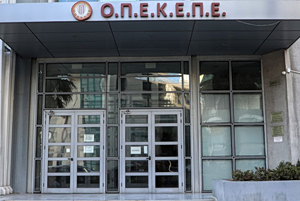The real news hidden in the Metron Analysis poll addressing the Greeks’ values and beliefs commissioned and published today by To Vima is something many of us already suspected.
That we are… a regular country (again, I’d say).
A country with its feet on the ground, which believes its people are defined above all else by their education and the environment they grew up in.
Which assigns near-equal weight to freedom and security.
Which wants social protection most of all, gender equality, environmental responsibility and public order.
Where two out of three people (66%) believe in God and have a religion.
And where (brace yourselves…) 40% believe that “the first thing schools should teach children is discipline.”
I don’t think a similar survey conducted in other European democracies would turn up radically different results.
So if some thought the Greeks’ system of values had been left in disarray by the Crisis years, they’ll have to accept that, even if it once were, everything is now largely as it was before.
It’s as if it was time for a spot of demystification (as the academics would say…) after all the upheavals, or people started to see straight again (as I’d put it myself).
But there’s more. Because it also explains the total collapse of the political forces that were born and grew strong during the Crisis. And, of course, it rebuffs all those who insist on believing the Greeks are or have become someone or something else.
Well, they aren’t. And they haven’t.
The poll also explains why the return to normality came about naturally, as people sought a little calm after the storm. Some may have said as much, but it wasn’t something that was thought up or imposed.
It was the moment when a nation remade its own acquaintance. When the Greeks looked at life as it really is again, undistorted and free of ideological obsessions and superficial nonsense. And relegated various extreme demands stemming from a confounding culture of entitlement back to the sidelines.
But our efforts to document and interpret our fellow citizens’ values and beliefs don’t stop here.
Next Sunday will see the publication of a second part of the survey, this time looking at the aspirations of the Greeks and more besides, and To Vima intends to revisit this kind of value research in the future.
It is my firm belief that it is impossible to understand a country if you do not first understand its people. And that facilitating this is a key obligation of a historical newspaper like our own.
So may 20025 be both happy and prosperous.
And, before all else, let us all be well!



